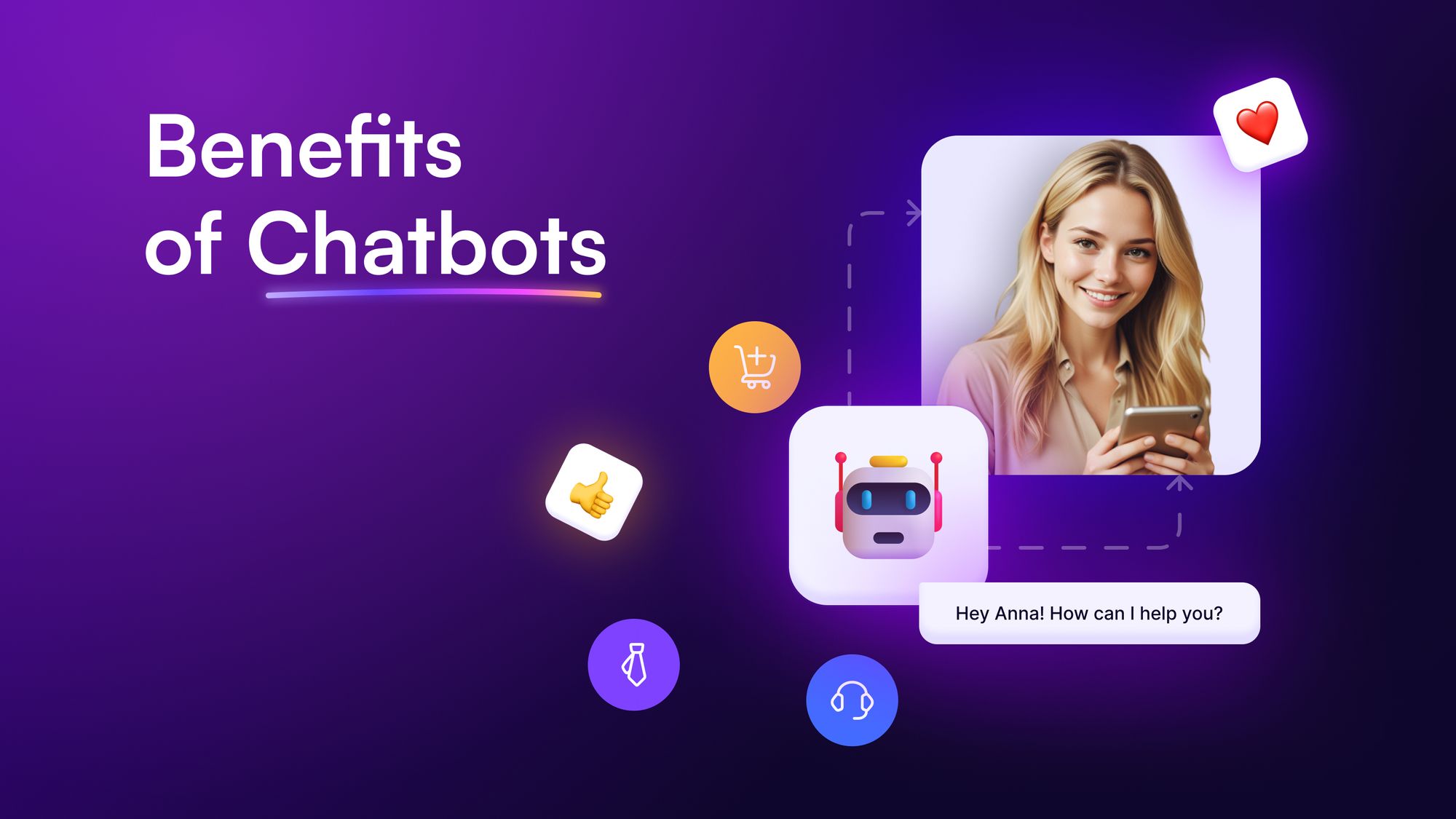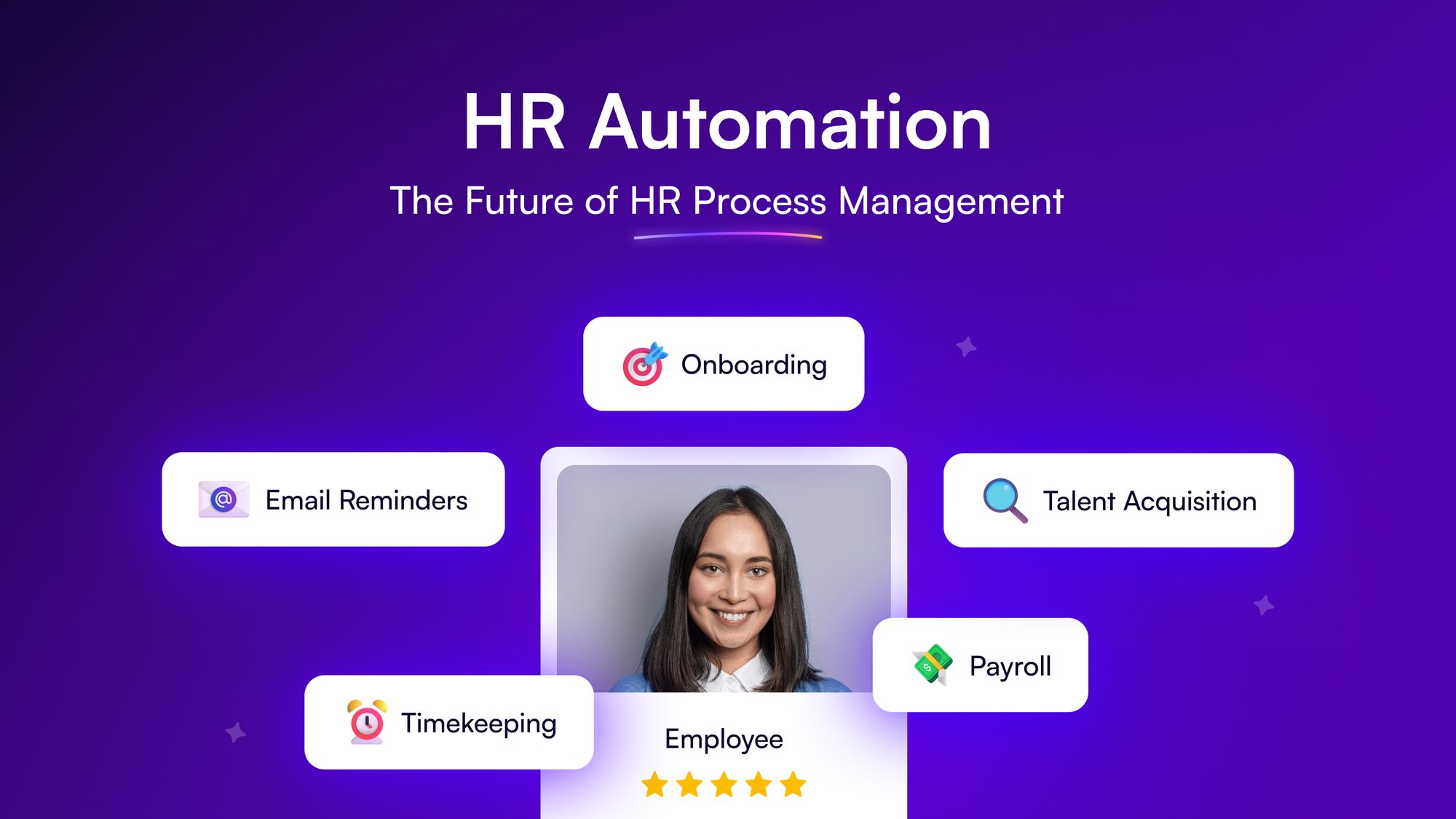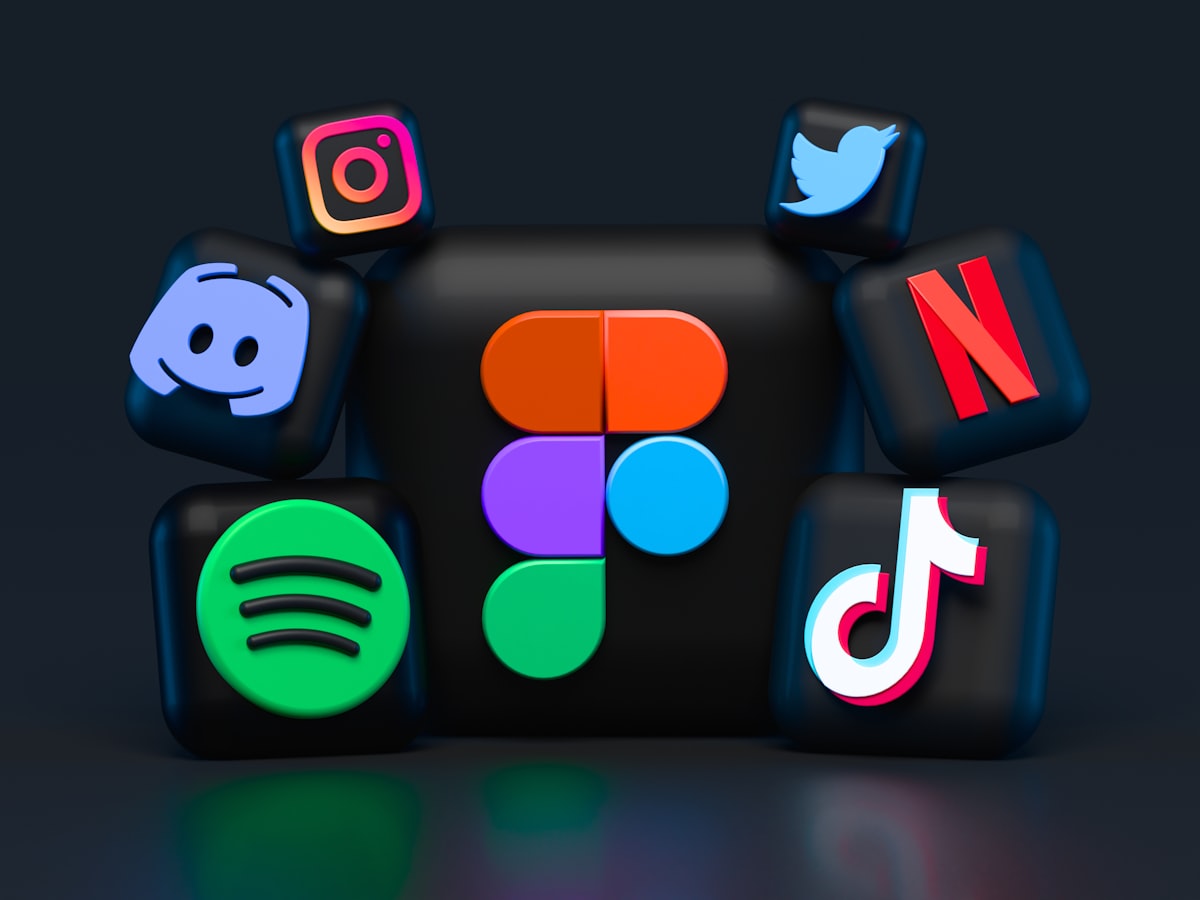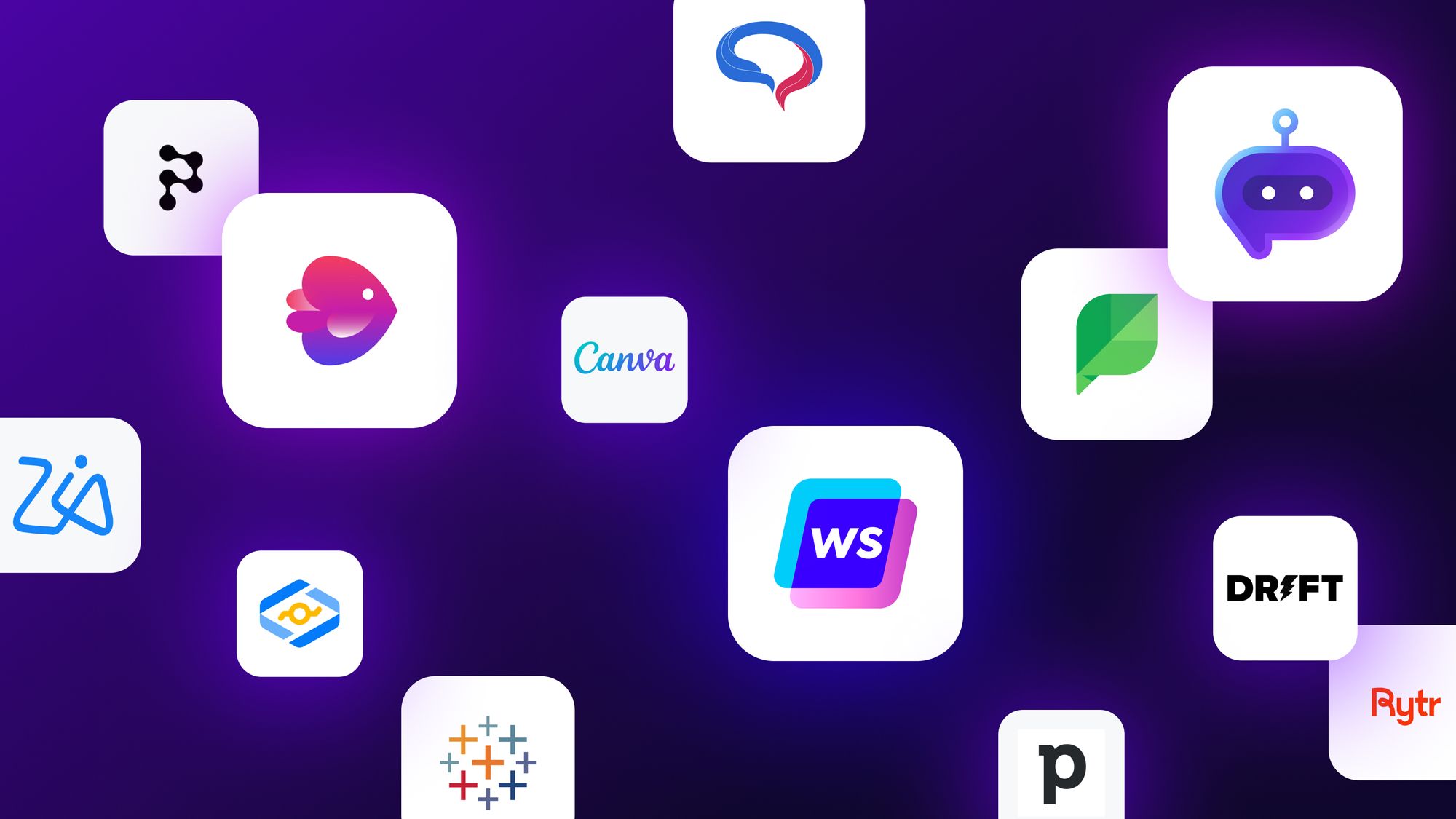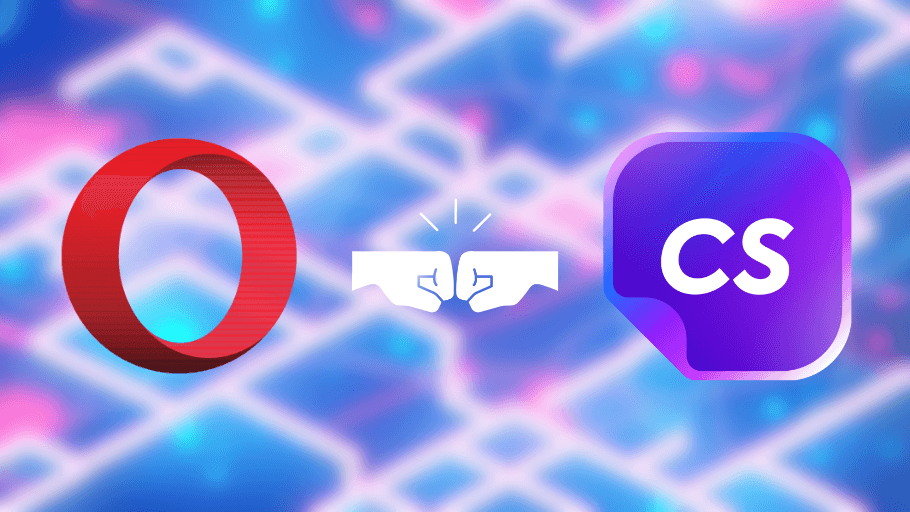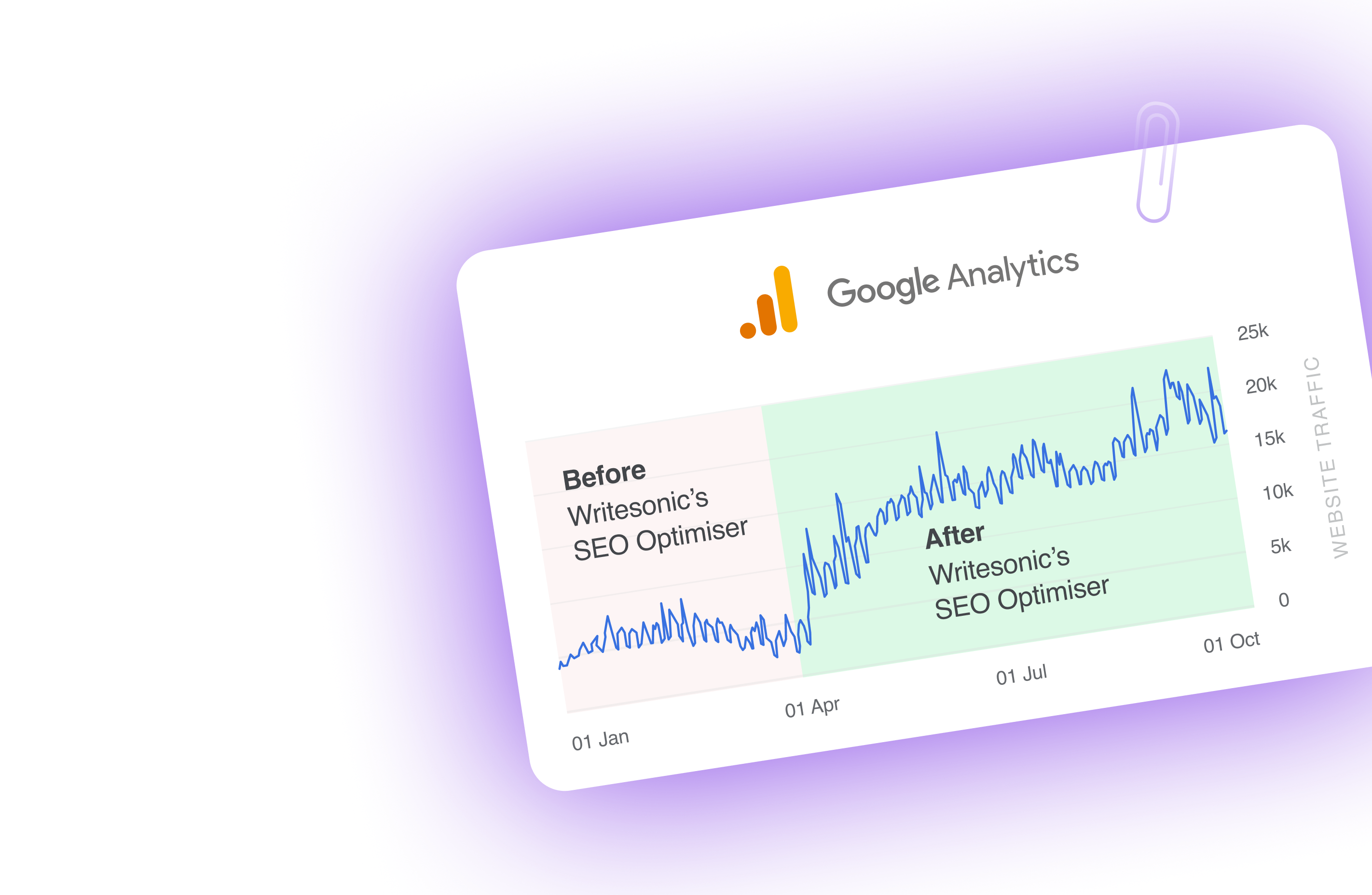Over the last few months, you might have heard of the increasing use of words like AI, generative AI, ChatGPT, and more. These words aren’t mere frugal efforts of a trend that will slow down but rather a butterfly effect. A conversation about a prompt on an AI tool and today’s businesses are formulating their business around it.
Considering how 50% of B2B companies fail within five years, AI for B2B growth is essential– because if you don’t imbibe it into your business and your competitors are already doing it, then you are giving them an edge in terms of speed, efficiency, and quality.
To even the playing field, we have 10 ways you can use AI in B2B. Let’s explore each of them in this blog.
Evolution of B2B SaaS with AI
AI has greatly impacted customer satisfaction, sales and marketing efforts, business operations, and product development in B2B, allowing businesses to offer personalized and efficient services, streamline sales and marketing efforts, automate tasks, and create innovative products. The potential of the AI industry for B2B companies is enormous, with a projected worth of $407 billion by 2027.
In the B2B marketing landscape, AI has shown great promise. According to a survey conducted by Semrush, 70% of B2B marketers believe that AI-powered applications will play a crucial role in improving and accelerating the buyer’s journey by providing personalized and relevant recommendations for the next best actions.
Its rapid adoption is driven by its ability to reduce costs, improve customer engagement, and yield real benefits for marketers. As AI continues to merge with advanced technologies, the potential for AI in the B2B SaaS industry will only continue to grow, empowering companies to achieve greater efficiency, personalization, and success in the fiercely competitive market.
How to use AI in B2B SaaS
AI in B2B has many applications, and nearly 85% of companies have adopted AI technology and experienced significant economic benefits.
Some specific use cases of AI in B2B have completely changed how businesses function in the future. Let’s discuss each of them.
1. Content marketing strategy
AI in B2B marketing is used by 67% of organizations, according to the new “Global State of AI in B2B Marketing Survey ” by Forrester. And more than 70% of respondents are planning on increasing the use of AI in marketing either “moderately” or “significantly” according to the study.
Using AI in B2B content marketing strategy offers significant advantages and opportunities for businesses. It helps companies to connect with potential clients, educate them about their offerings, and guide them through the sales funnel.
A comprehensive AI tool like Writesonic can revolutionize how B2B companies produce high-quality content to engage with their audience and drive business growth. Writesonic is an AI-powered writing tool that creates various types of content, such as blog posts, landing pages, email copies, ad copies, and social media content, with a brand’s unique voice and retaining brand identity elements. With over 100 templates, Writesonic empowers businesses to produce content 10 times faster while maintaining quality and relevance.
Diversifying content formats is another key tactic for a successful B2B content marketing strategy. To do this well, businesses can create various content formats, such as articles, chatbot interactions, video creation, and more. Additionally, with the aid of an AI voice generator, they can efficiently diversify into audio-based content. AI tools like Writesonic can help businesses scale their content creation efforts, ensuring they consistently provide valuable and engaging content to their audience.
Utilizing tools like Writesonic for AI-based marketing empowers businesses to create high-quality content at scale, engage with their target audience more effectively, and drive business growth.
Here are some examples:
Create a social media plan
Once you log in to Chatsonic, Writesonic’s generative AI chat tool, you can select the social media prompt from its prompt library.
Then all you have to do is enter the keyword relevant to your brand, and here we have entered data analytics as the relevant keyword.
Then all you have to do is enter the keyword relevant to your brand, and here we have entered data analytics as the relevant keyword.
Within seconds, Chatsonic will give you an extensive calendar with image suggestions!
Create a content calendar
Creating an extensive content calendar can be made easy in the same way. Choose the content calendar prompt in the prompt library and enter the keyword. We have entered social media analytics as the main keyword for a social media analytics product.
The tool will then give you an extensive calendar with content suggestions for 5 days of the week.
Create your content calendars in seconds today
2. Combining customer data
Combining data with AI in B2B is a powerful and authoritative approach that significantly enhances marketing effectiveness and customer experiences. Businesses can collect and compile data from various sources by leveraging AI tools, creating comprehensive customer profiles, and enabling better customer segmentation.
Furthermore, by integrating AI with social listening and analysis tools, businesses gain valuable insights into customer pain points, buying behaviors, and competitors’ targeting strategies.
The role of AI algorithms in personalizing customer interactions and optimizing B2B growth strategies cannot be understated. Analyzing customer feedback, social media conversations, and market trends enables AI to identify patterns and preferences, facilitating the creation of highly targeted and relevant content. This personalized approach allows businesses to deliver individualized experiences, resonating with each customer on a deeper level.
Here is an example of how customer data is synthesized from various sources.
3. Customer segmentation
Customer segmentation with AI in B2B has revolutionized how sales teams target and engage with customers. AI-driven insights and predictive analytics enable businesses to create highly accurate and granular customer segments based on multiple criteria.
By analyzing diverse data sources, including behavioral, transactional, and contextual data, AI can uncover patterns and preferences among customers that traditional methods might overlook. This allows businesses to create more specific customer groups based on pain points, goals, buying readiness, or potential value.
With AI-powered segmentation, businesses can deliver personalized targeting strategies, tailoring value propositions, content, and offers to match each segment’s unique needs and motivations. AI ensures higher conversion rates, increased customer loyalty, and improved retention.
Here is an example of a tool that helps you derive insights from customer data for marketing and sales efforts.
3. Lead scoring
62% of salespeople expect AI to transform selling over the next years. AI-powered lead generation and lead scoring tools offer significant advantages for businesses seeking to generate high-quality leads and optimize their sales processes.
Here is how AI in B2B sales enables growth:
1. AI’s Role in Lead Generation: AI can play a crucial role in lead generation by automating data collection, analysis, and management, leading to improved lead quality and increased quantity of generated leads.
2. Automation and Efficiency: AI automation allows marketers to spend less time on manual data collection and more time implementing strategic practices. By automating sales funnels, AI B2B tools can offer personalized recommendations to customers, identify upselling opportunities, and improve customer experience.
3. Segmentation and Lead Scoring: AI-powered lead scoring systems help businesses prioritize and focus on the most promising leads, enhancing efficiency and customer experience. Companies that invest in advanced lead-scoring systems tend to experience faster growth.
4. Customer Profiling: AI can be used to develop more accurate customer profiles, which include demographics, interests, and purchase history. This enables targeted marketing campaigns that are more likely to generate sales.
5. Sales Forecasting: AI-based sales forecasting tools can analyze historical sales data and current market trends to predict future sales performance. Accurate sales forecasts help companies make informed decisions and allocate resources effectively.
6. Customer Retention: AI tools can identify factors that cause customer churn and allow businesses to address customer concerns and improve satisfaction proactively. Personalized product recommendations based on customer behavior can enhance customer retention.
7. Utilizing AI for Lead Generation: AI lead generation tools can automate tasks, improve lead qualification, and optimize lead generation processes. Some AI tools mentioned in the provided information include Reply.io, LeadFuze, PhantomBuster, ClickFunnels 2.0, GoHighLevel, and more.
8. Quality Data for AI Tools: The effectiveness of AI tools relies on the quality of input data. Accurate and high-quality data is crucial for optimal performance and desired results from AI lead generation tools.
Here is an example of AI-based lead scoring through Hubspot.
5. Demand generation
With AI in B2B, businesses can forgo manual data analysis and retroactive content creation—AI now paves the way for real-time, hyper-personalized interactions that captivate every website visitor, known or unknown.
This comes in tandem with the consumer platforms like Netflix, Amazon, Spotify, and Facebook, which have raised the bar for B2B buyers’ expectations. The demand for instant gratification and tailored experiences remains unyielding even within their professional domain. However, recent studies warn that a staggering 80% of B2Bs will abandon personalization by 2025 due to their inability to capitalize on data and deliver ROI.
Therefore utilizing better ways to get the same personalized efforts is imperative today, and this is how AI will fulfill the gaps.
Pushing AI into demand generation is about more than just the tech stack but precision and maximum return on investment. An application in demand generation lies in offer optimization. AI prompts can fuel creativity and craft CTAs that trigger loss aversion, resonating powerfully with prospects. Tailored headlines highlight unique value propositions and relevant keywords.
Additionally, AI streamlines demand generation by automating repetitive tasks, saving time and resources while ensuring consistent, impactful communication with prospects.
By providing seamless, hyper-personalized experiences, anticipating demand, and automating tasks, AI drives unbeatable ROI, making brands leaders in a competitive market.
6. Social media insights
For businesses, the potential for growth through social media is unparalleled. AI-driven technologies are paving the way for data-driven precision and strategic brilliance. Here are some ways that AI in B2B can prominently elevate growth.
1. Decipher data
With AI, businesses can seamlessly analyze colossal volumes of social media data, deciphering patterns, sentiments, and emerging trends. These insights fuel a deep understanding of the target audience, enabling businesses to create tailored content that resonates profoundly.
2. Personalized messaging
AI algorithms can analyze user interactions, historical data, and demographic information to curate tailored content for every individual. This engages audiences, who will feel a genuine connection with the brand, driving higher conversion rates and long-term loyalty.
3. Craft content that resonates with the audience
AI-powered tools like Sprout Social, Smartly.io, and SocialBakers empower marketers to draft content meticulously aligned with audience preferences and interests. B2B businesses can craft compelling and share-worthy content that leaves a lasting impact by understanding what truly resonates with their prospects.
4. Predictive Insights
AI algorithms can forecast future market trends and shifts by analyzing historical data and real-time trends. This foresight enables businesses to stay ahead of the competition. AI-powered predictive insights can inform B2B product launches, marketing campaigns, and overall business strategies for maximum impact.
5. Optimal Advertising Strategie
AI clarifies by optimizing advertising strategies for maximum ROI (ROI). These platforms analyze performance data in real time, ensuring that B2B ads reach the right audience with the right message at the right time. This data-driven precision translates into heightened engagement and increased lead generation.
6. Seamless Social Media Management
AI streamlines social media management by automating repetitive tasks like post-scheduling, monitoring competitor strategies, and tracking campaign performance. This newfound efficiency liberates marketers to focus on strategic planning and creative endeavors, amplifying the impact of their efforts.
Here is an example of AI-based social media insights from Sprout Social.
Create social media content with Chatsonic for free
8. Email marketing
Imagine a world where your email campaigns practically run themselves, guided by the smartest marketing assistant you could ever hope for – that is AI. This is the liberty with AI in B2B marketing with email campaigns.
With its ability to analyze mountains of data and predict user behavior, AI can revolutionize your B2B email marketing efforts. No more second-guessing the perfect send time or racking your brain for catchy subject lines. AI-powered platforms like Writesonic can generate engaging subject lines and email content tailored to your audience’s preferences. By tapping into audience personas and product guidelines, AI ensures that your messages strike the right chord with your subscribers. You can also test different variants in real-time to fine-tune your campaign for optimal results.
The impact of AI on email marketing goes beyond just boosting open rates and click-throughs – using predictive analytics to segment your email lists and send personalized messages that resonate with each recipient that doesn’t end up in spam folders.
The power of AI with innovative tools like Phrasee, Zetaglobal, and Seventh Sense can supercharge your email marketing game. With AI as your trusty marketing ally, you can deliver tailored services to your clients, boost customer satisfaction, and achieve remarkable results across all communication channels.
Here is an example of AI-based email marketing campaign insights by Optimail.
🎯
Create B2B emails with AI that drive conversions with Chatsonic
9. Reduce bounce rates
In fiercely competitive B2B marketing, battling high bounce rates and elusive conversions is a daily struggle. The average bounce rate hovers at a daunting 61.04% for B2B companies making it challenging to engage prospects effectively.
This is where AI gets an opportunity to change the current approach. Personalized exit-intent popups backed by AI intelligence replace generic forms, offering tailored content recommendations based on individual preferences and behaviors. This win-win situation keeps visitors engaged while nurturing valuable leads, enhancing user experience, and improving conversion rates.
B2B searches are predominantly mobile-driven, with approximately 70% of all searches on mobile devices. However, traditional exit-intent popups can disrupt the user experience and deter potential leads. AI provides a smarter solution to this challenge by leveraging data from various sources to create personalized exit-intent popups.
With AI in B2B growth, businesses can conquer high bounce rates and achieve remarkable results in their marketing endeavors.
Here is an example of an exit intent popup on Zendesk’s website.
10. Ad campaigns
AI is playing a huge role in the digital advertising industry, transforming it into an automated and customized process that delivers impressive results and maximizes returns on investment. Major platforms like Google Ads, Meta, and LinkedIn now utilize AI algorithms for ad copy creation, landing page generation, and A/B testing. The impact of AI goes beyond mere automation; it’s about achieving meaningful results. Tools like Writesonic make it easy to create this content in minutes.
Companies can easily increase sign-ups while reducing customer acquisition costs through paid search campaigns that are created with the help of AI writing tools. This can help businesses rank for more meaningful keywords.
The capabilities of AI in B2B for paid advertising are vast, encompassing data analysis, targeting, bidding optimization, performance forecasting, and budget allocation. With AI at the helm, B2B marketers can harness the power of automation and data-driven insights to take their ad campaigns to new heights.
The example below shows how the AI tool Chatsonic can be used to create Good ad descriptions.
Use the Google ads prompt from the library, and enter the details as needed.
We asked it to create 5 ad descriptions for a landing page, and here are the results generated in seconds!
💡
Get started with ad campaigns and use AI for B2B in innovative ways!
11. Intuitive chatbots
Your customer support team is tirelessly handling constant inquiries, working around the clock to provide real-time support. But by harnessing the power of artificial intelligence, you can revolutionize your customer support strategy and cut operational costs.
AI-driven chatbots are programmed to analyze frequently asked questions, past inquiries, and the resources you provide. Armed with this knowledge, they compile intelligent responses based on past experiences.
This leads to a highly efficient chatbot that handles customer inquiries and offers timely solutions, freeing your customer support representatives to focus on urgent and complex requests requiring a human touch. The workload for your team dramatically decreases, and your customers get the support they need at lightning speed with this use case of AI in B2B.
Engaging with customers in real time, these intuitive chatbots provide personalized recommendations and expertly guide customers through their buyer’s journey.
Using Writesonic’s Botsonic tool, you can easily create this intuitive chatbot on your own in minutes. Here is an example of how the chatbot can answer your customer’s queries without human interaction.
💡
Create your Chatbot with Botsonic in minutes
Challenges with bringing AI to B2B
While AI is rapidly becoming an indispensable tool for businesses across the globe, AI in B2B also brings some challenges for companies. Like any new technology, it brings concerns about the unknown. Here are some challenges and what you can do about them to ensure that AI in B2B only brings you success and not challenges.
1. Data literacy
In the B2B context, the successful implementation of Artificial Intelligence (AI) poses several challenges related to data literacy. Access to data, the ability to interpret data meaningfully, and being recognized as key contributors to defining the company’s data strategy are among the barriers hindering the adoption of AI in B2B settings.
Key challenges include access to high-quality data, meaningful data interpretation, and the recognition of data strategy importance. To overcome these challenges and create successful Marketing AI solutions for growth, B2B CMOs should focus on improving data quality and quantity through augmentation techniques, integrating citizen data scientists within their teams for effective data interpretation, actively participating in shaping the company’s data strategy, and fostering collaboration between data scientists and business analysts
2. Martech alignment
The challenges and opportunities of using AI in B2B sales and marketing present a mix of obstacles and potential for businesses. One significant challenge is aligning the existing martech stack with AI goals, as AI is not a standalone product but an enhancement for existing tools. Additionally, the cost of AI investment can be daunting for business owners requiring strategic alignment of AI components with existing technologies to ensure clear revenue growth and customer engagement benefits.
Moreover, the tendency to adopt new marketing tools tactically can lead to fragmented investments and underutilization of the martech stack’s full potential. CMOs must take a holistic approach, evaluating the impact of each AI component and its alignment with long-term goals.
To effectively implement AI in B2B sales and marketing, businesses should start with pilot projects, prioritize data quality, and involve employees to build trust and ensure a smooth transition. By overcoming challenges strategically, businesses can seize AI’s opportunities and achieve revenue uplift and increased sales ROI.
3. Ethical conundrums
The ethical conundrum in AI for B2B arises from AI’s lack of moral awareness, leading to unintended content generation consequences. In industries like healthcare and banking, strict regulations make it vital to address the challenges posed by AI-generated content, which can be inaccurate, offensive, or harmful.
To tackle this challenge, businesses must adopt a multi-faceted approach. Responsible AI development is crucial by involving diverse teams of experts, including ethicists and domain specialists, to embed ethical considerations in AI system design. Continuous monitoring and content evaluation are essential to identify and rectify inaccuracies or biases, while clear guidelines and human oversight reduce the risk of inappropriate outputs.
Transparency and explainability in AI models help build trust with stakeholders and facilitate proactive issue identification and correction. Ongoing education and awareness initiatives ensure ethical AI usage, enabling businesses to navigate the ethical conundrum responsibly, deliver value to customers, and adhere to industry regulations.
4. Use case clarity
The use case clarity challenge in AI for B2B stems from the multitude of potential applications, making it challenging for businesses to determine the most suitable ones for their needs.
B2B professionals must understand how to use AI beyond basic predictions and suggestions. They should learn more about how AI can be applied differently to improve their marketing and sales efforts.
To do this, they can train their marketing teams to understand AI-powered tools and how they can be used to create personalized customer experiences. By focusing on specific problems they want to solve, they can identify the best AI solutions to enhance their marketing performance.
To better understand AI’s potential, B2B professionals can try out free trials, demos, and presentations from companies that provide AI technology for marketing (martech solution providers). This will give them valuable insights into how AI can be used in their industry.
By taking these strategic steps, B2B companies can figure out how to use AI in ways that make sense for their specific marketing goals. This will help them leverage AI technology effectively.
5. Fear of AI replacement
Ryan Law, the VP of Content at Animalz, said, “The goal isn’t to write everything with AI — the goal is to get great results from our content.“It’s a human writer’s job to seed the generated content with information gain, to add real-life examples; customer stories; accurate, trusted, and relevant data; product mentions; CTAs.”
The fear of AI replacing humans is a significant challenge in B2B AI adoption. Businesses can opt for AI platforms that offer “explainable” AI, providing transparency into AI model decisions and making the technology less intimidating. Marketers can see how AI enhances their work and is not here to replace them
Another approach to address the fear of AI replacing humans is empowering marketers with the right tools and processes. When marketers have direct access to AI-driven customer data and insights, reducing reliance on IT and data science teams, they feel more in control of the technology.
Bring in a culture of reliability within the company and emphasize the collaborative role of AI and human marketers, where AI assists in data analysis and helps content and sales teams create more while humans contribute creativity and domain expertise, fostering a positive outlook on AI’s potential to deliver great results.
6. Compliance concerns
Compliance concerns in B2B AI revolve around data quality, integration with existing systems, and the need for more trust. Data integrity and privacy are critical, as B2B sales and marketing deal with complex and scattered data. Integration with existing systems can be daunting, requiring attention to compatibility and security.
To tackle these challenges, businesses should establish a robust governance structure involving compliance teams, legal experts, and data scientists. Transparency, explainability, and human oversight are crucial for building trust in AI-powered systems, while compliance-specific AI solutions can ensure regulation adherence.
Continuous monitoring, employee education, collaboration with regulators, and pilot projects are essential to responsible AI adoption in B2B settings.
Even while using customer segmentation data, B2B marketers should prioritize data quality and privacy, comply with data protection regulations, and emphasize human skills and transparent communication when using AI.
Embrace the powers of AI for B2B
To stand out in a crowded market, utilizing the powers of AI for B2B growth is not just a good-to-have asset. It is essential.
As the world embraces AI, B2B companies must recognize its potential as a growth catalyst and seize its opportunities. By embracing the powers of AI, businesses can elevate their marketing and sales efforts and maximize ROI.
Try Writesonic to be your growth partner while accelerating your B2B company. Whether you want to empower your sales team with sales enablement content, your content team with a tool to improve their content engine, or your growth team with tools for advertisement prowess – Writesonic can do it all.
Sign up with Writesonic today!
Frequently Asked Questions
1. How is AI changing B2B marketing?
AI transforms B2B marketing by helping businesses analyze data, predict customer behavior, and create personalized experiences. It enables companies to understand customer needs better and deliver tailored solutions, as seen in Salesforce’s use of AI to provide personalized offerings.
2. What is the role of AI in B2B sales?
AI is revolutionizing B2B sales by automating tasks, personalizing outreach, and enabling data-driven decision-making. This integration offers increased efficiency, improved accuracy, enhanced customer experiences, and predictive insights.
3. How can AI help businesses grow?
AI can help businesses grow by automating repetitive tasks, increasing operational speed, reducing costs, and enabling employees to focus on more critical activities. It streamlines operations and enhances overall efficiency.
4. What are the use cases of AI in B2B marketing?
AI has various use cases in B2B marketing, with targeting, personalization, and marketing automation/tactic orchestration among the top choices. AI helps identify the right audience, tailor content, and automate marketing processes.
5. Will B2B sales be replaced by AI?
While AI enhances sales effectiveness by providing insights and support, it will not replace human sales representatives entirely. AI complements the work of salespeople but cannot replace the value of human interactions and relationships in complex B2B transactions.
6. What is B2B marketing strategy?
B2B marketing strategy is a focused approach where businesses sell goods or services directly to other businesses. It involves identifying target markets, developing personalized content, utilizing marketing channels, and optimizing customer engagement to drive growth.
7. How does AI change marketing?
AI changes marketing by enabling personalization through data analysis. Marketers can use AI algorithms to understand customer preferences and deliver tailored messages and recommendations. This increases customer engagement and boosts conversion rates.

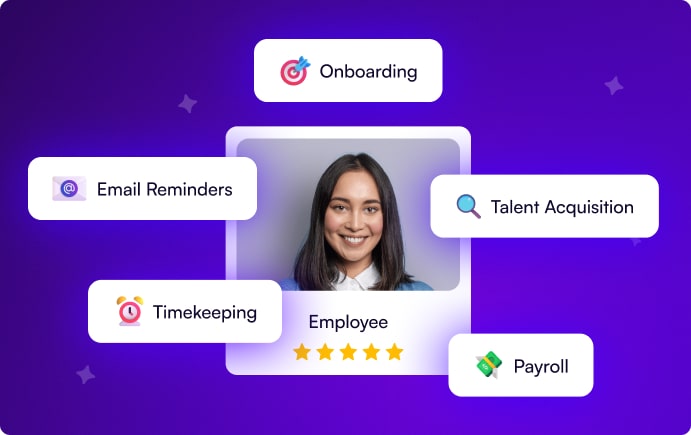

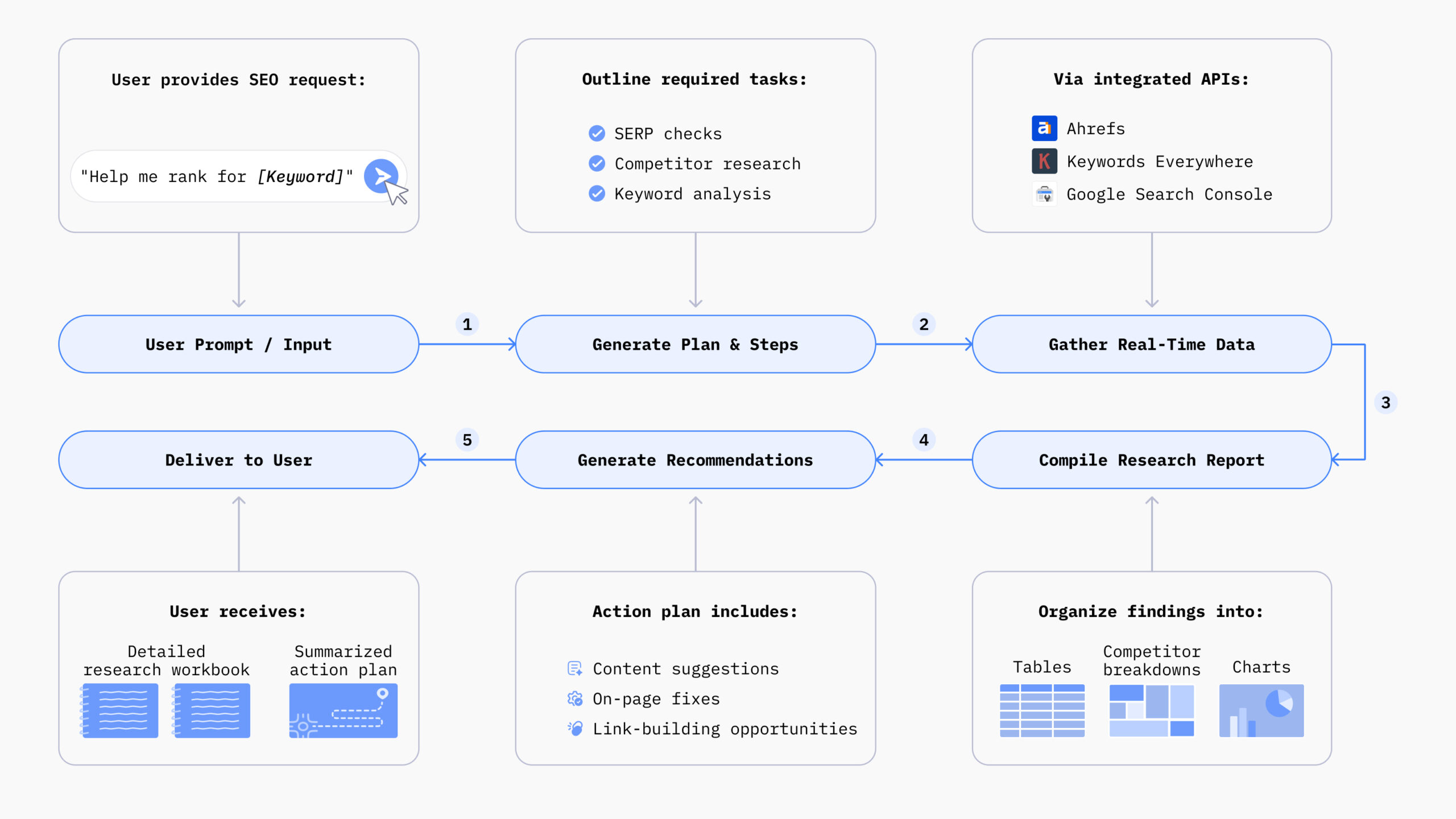

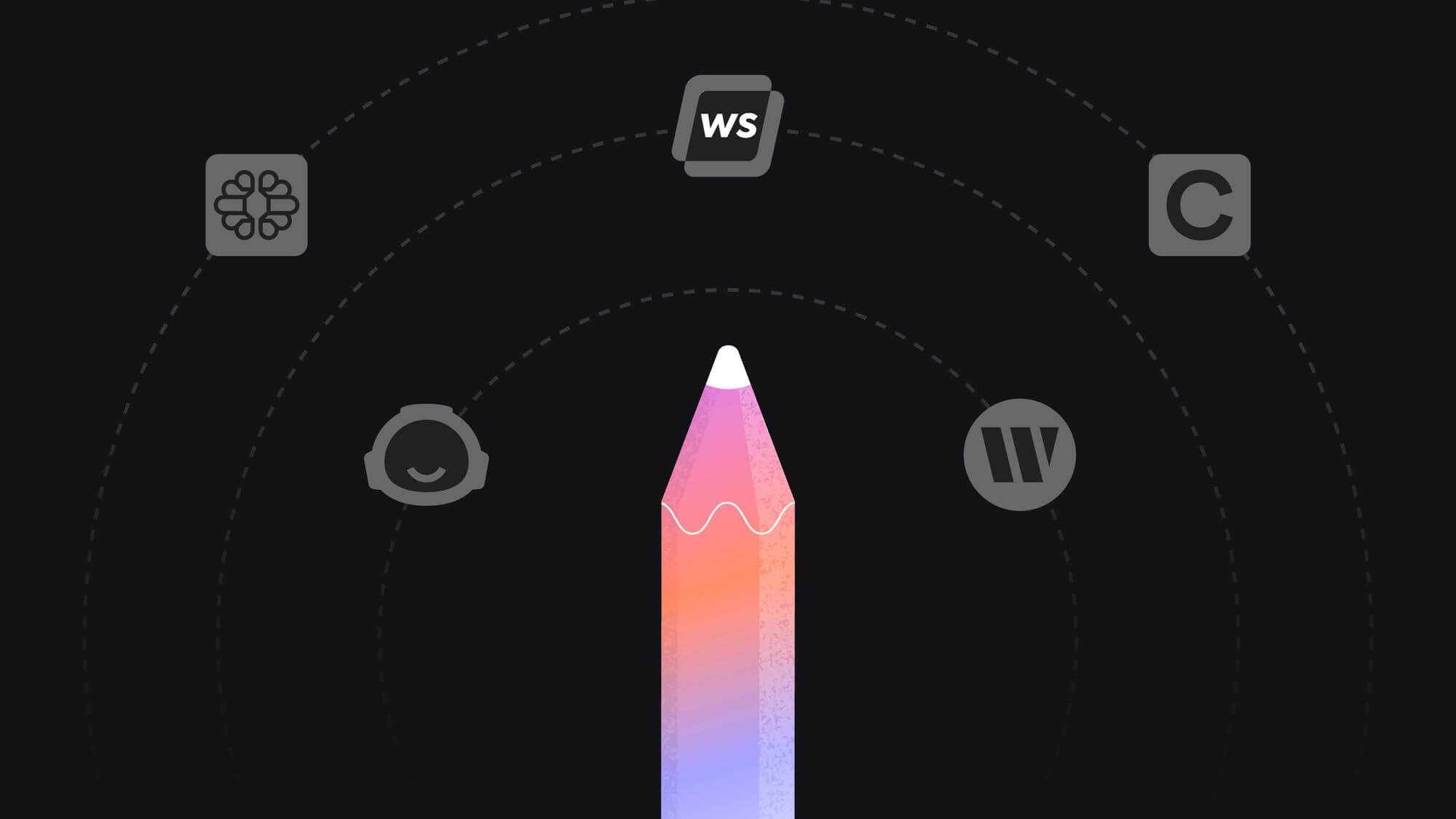

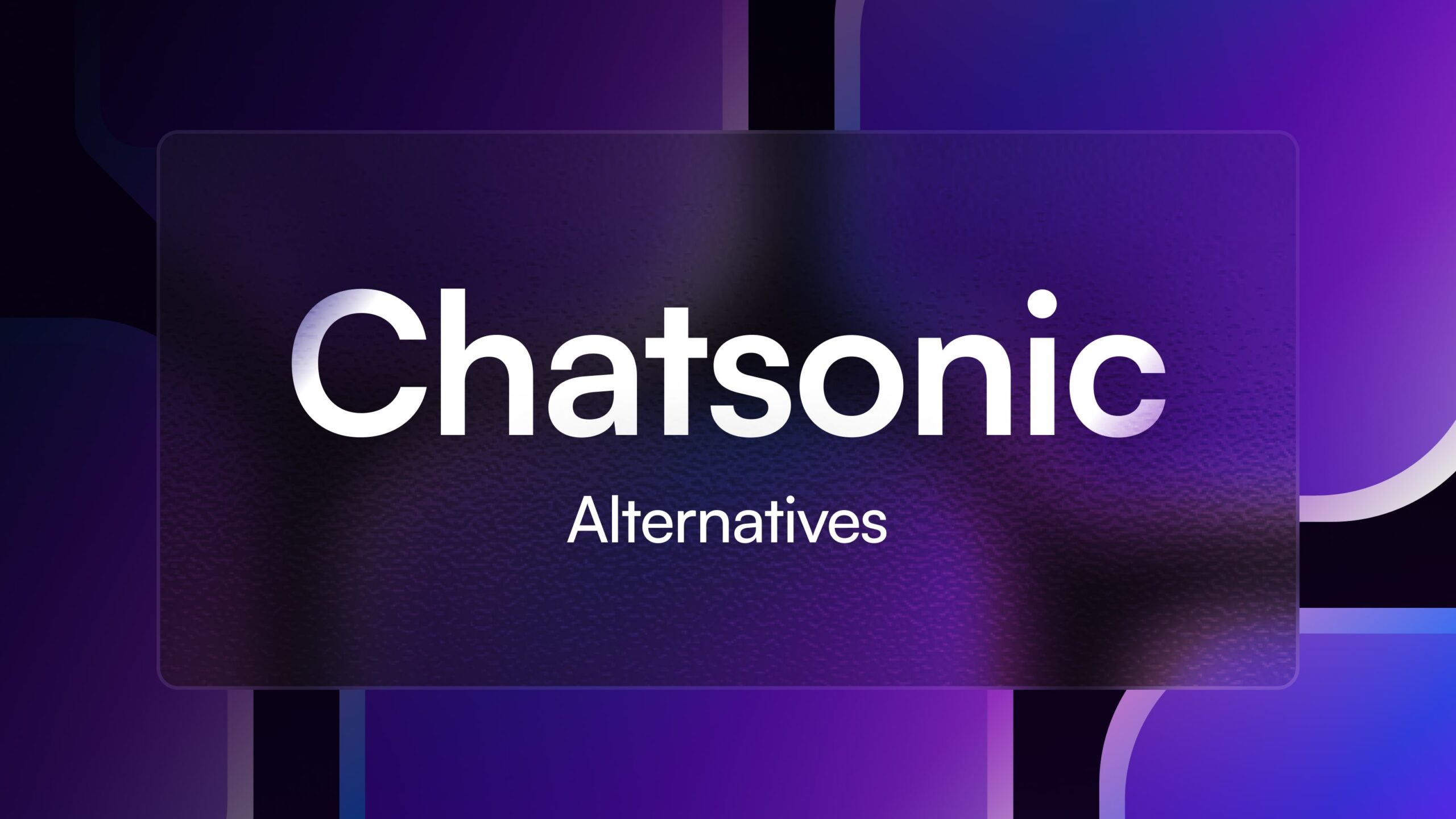
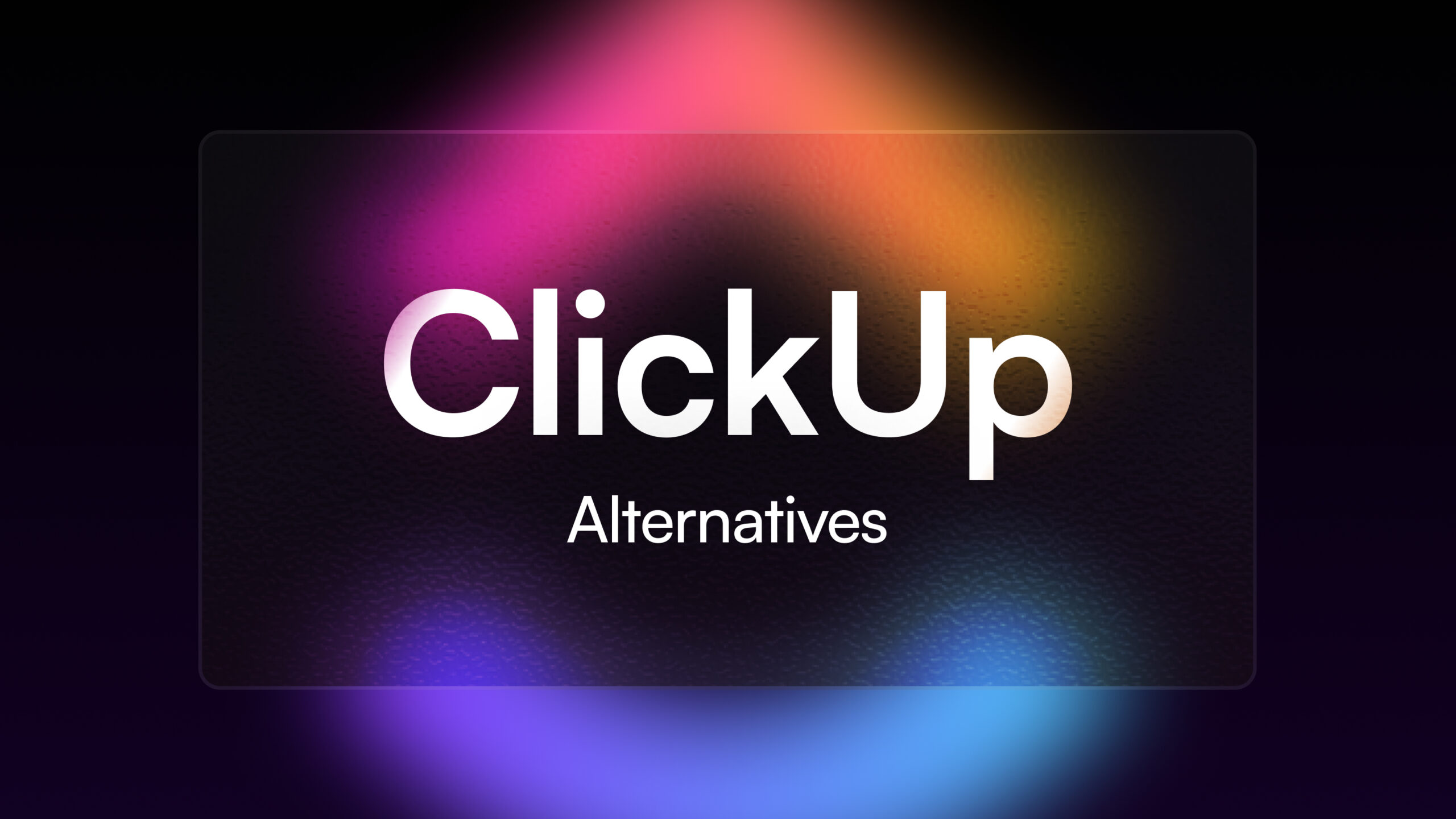


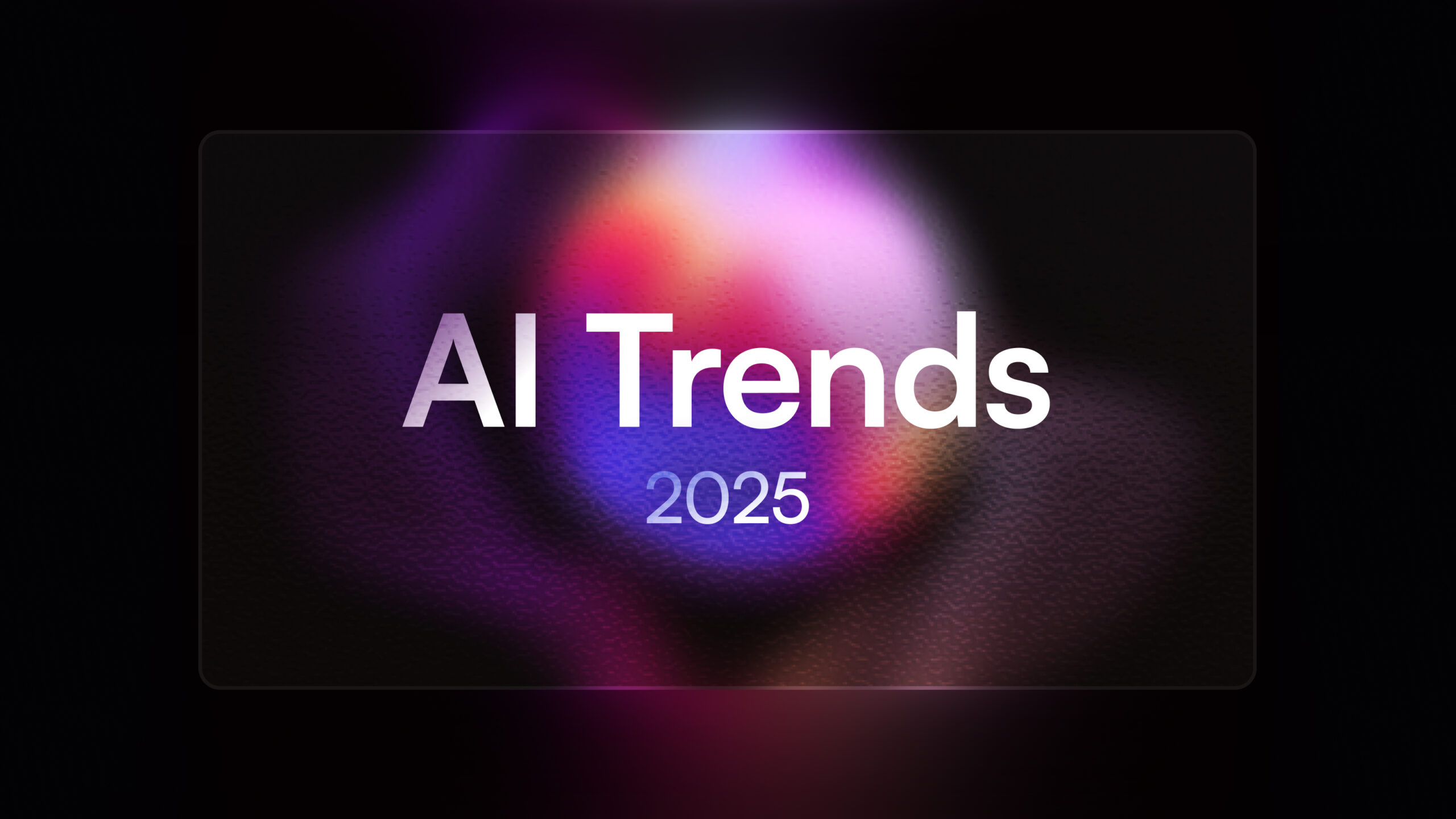
![How to Outsource Content Writing: Essential Steps [+10 Best Platforms]](/wp-content/uploads/Outsourcing-Content-Writing.jpg)
![How to Use ChatGPT for SEO: 10+ Strategies [Tips and Tricks]](/wp-content/uploads/4-1-1.png)



